The debate on immigration that has seemed to dominate British politics recently also has its echoes in football discussions. I have even in Ireland heard how there are too many foreign players in the English game. When I point out that Irish players are also foreign in the English game this prompts an exception. Even at the top of the English game the argument for limiting the number of foreign players seems to be getting traction - despite the lack of evidence and faulty logic.
The emphasis in English commentary is on the number of players immigrating into the Premier League. This is probably because so few English players emigrate to ply their trade in foreign leagues. So while the argument goes that it may be bad for the English national side to have so many foreign players blocking chances for local players to progress, there is a corollary there that the English national team may benefit from English players going to play in other leagues.
I was pleased to come across a paper in the area in Applied Economics Letters co-authored by Grant Allan and John Moffatt from Strathclyde and Durham respectively. Grant is a colleague of mine in the Regional Science Association so we have even more to discuss at our annual conferences.
The implication of the study for English football is to embrace the 'other' aspect of openness of international labour markets by encouraging English footballers to play abroad, broadening their experience and developing skills and awareness. The paper considers two phenomena - muscle drain (the loss of players to foreign leagues) and brain gain (the hiring of foreign managers to manage the national side). The paper considers the effect of these two issues on national team performance.
The paper finds, using data on national team ranking, league standing and numbers of foreign-based players and imported managers, that the 'player export' variable is robustly positive and significant, suggesting that having players playing abroad has a beneficial effect on the national team ranking. The 'manager import' variable however is negative, suggesting that there may be cultural differences between players and managers that may be difficult to surmount.
It's interesting to consider these findings in the context of performances at this year's World Cup in Brazil. In their squad England had one foreign based player - Fraser Forster the third choice goalkeeper who plays with Celtic in Scotland. Of the semi-finalists, Brazil had 19 players out of 23 playing outside Brazil, Germany had 7 playing abroad (in England, Italy and Spain), Argentina had 20 playing abroad and the Netherlands had 13 playing abroad. Of the other teams in their group, the number of domestic players in each squad were 20 for Italy, 10 for Costa Rica, and 1 for Uruguay. The latter two qualified for the quarter final. This is an interesting site for data on this.
While England had an English manager at a World Cup for the first time since 1998 it wasn't enough to overcome the 'player export' variable. Maybe it's worth noting that that the semi-finalists all had domestic managers too.
|
by Declan Jordan
0 Comments
By Paul O'Sullivan By Robbie Butler In Part 1 of this piece I consider the competitiveness of sports, with particular focus on tennis. As stated, I believe we are currently watching three of the greatest tennis players not just of a generation but of all time. Roger Federer, Rafa Nadal and Novak Djokovic have between them won 38 of the last 45 Grand Slams. Since Federer's Wimbledon victory in the summer of 2003 only Andy Roddick, Gastón Gaudio, Marat Safin, Juan Martín del Petro, Andy Murray (twice), Stanislas Wawrinka and Marin Cilic have won a Grand Slam. The trio of Federer, Nadal and Djokovic held a monopoly on Grand Slams from Wimbledon 2004 until the 2009 US Open when sixth seed Juan Martín del Petro shocked Federer in the final, winning by 3 sets to 2. Remarkably, del Petro was vistorious despite the fact Federer, Nadal and Djokovic all reached the semi-final stage. However, the monopoly quickly resumed and was only broken in 2012, again at the US Open, when Andy Murray overcame Djokovic in the final. The graph below attempts to capture the dominance of Federer, Nadal and Djokovic since 2005. The top four players in the ATP Tour Ranking at the end of each season are analysed to give a C4 measure of competitive balisrnce. In 2005 and 2006 Federer and Nadal held the top two spots. Djokovic joins them in 2007 and the three remain in the top three spots until the end of 2011. The 4th spot is filled by various players over the years with Lleyton Hewitt (2005), Andy Murray (2007; 2009-2011) and even Nadal (2012) holding 4th place.
The measure of competitive balance illustrates how unbalanced ATP Tour Points were among the Top 20 players. Perfect balance would report a score of 100. The rising blue line from 2008 to 2012 indicates a growing imbalance in the allocation of points between the Top 4 (C4) and the rest. This coincides with the dominance of Federer, Nadal and Djokovic, especially in Grand Slam events. 2013 and 2014 were the first two years since 2002 that Roger Federer has not claimed a Major title. The C4 graph also declines during this period. It's no coincidence that two new Major champions were crowned; Stanislas Wawrinka and Marin Cilic. While Federer is enjoying a resurgence under coach Stefan Edberg, and Nadal continues to suffer from injuries, it's likely that the great imbalance is coming to an end. Federer may not win another Grand Slam and Nadal needs to fully get over his injuries to ensure the same fate doesn't meet him. While many players and spectators may be happy to see and end to such dominance, many others will miss them. I'm just happy to say I got to witness their fantastic talents. By Robbie Butler
In recent years I have watched tennis not so much because I am a massive fan of the sport but more so because I believe we are lucky enough to be witnessing a golden generation. Roger Federer (17), Rafa Nadal (14) and Novak Djokovic (7) have to date won 38 Grand Slams between them. Since Federer won his first Grand Slam in 2003 (Wimbledon) only seven others (excluding Nadal and Djokovic) have won a Grand Slam title. Between them the three have won nearly 87% of all Grand Slams since Wimbledon 2003. This covers a massive 45 Slams! While the three have dominated tennis for more than a decade, there is still uncertainty of outcome when it comes to them playing one another. Many sports fans are often critical of champions that are 'too dominant' and suggest that they are beating a sub-standard level of opponent. World Heavyweight Boxing Champion Wladimir Klitschko comes to mind. The current WBA (Super), IBF, WBO, IBO and The Ring world champion is now unbeaten in his last twenty-one fights, with his last defeat coming way back in 2004. However, Dr. Steelhammer is often criticised unfairly for the standard of opponent he faces. Surely, this isn't his fault? All he can do it beat what's put in front of him. Great boxers are often remembered not because they won every fight but because they were part of a golden generation which fans of the sport were privileged to be part of. Sugar Ray Lenoard, Roberto Duran, Marvin Hagler and Thomas Hearns are still considered some of the greatest boxers ever to enter the ring. All were defeated. However each fought against one another in what many consider to be a golden generation of middleweight boxers. Fans of equine sport will recall the titanic battles between Kauto Star and Denman from 2007 to 2010. The great Arkle, regarded by most and more importantly the national hunt handicapper, as the greatest national hunt horse of all time, had to overcome the almost equally great Mill House. One could argue Messi and Ronaldo are locked in an equally great struggle to be crowned the greatest player of all time. It seems sports stars become legends when they are faced with an equally great opponent and are not just defined by their own ability but also the ability of those around them. Federer, Djokovic and Nadal are very lucky in that regard. Each is surrounded by greatness on two sides. We are lucky enough to have front row seat. We'll take a closer look at the data on this in Part 2. By David Butler
I always find bringing sporting examples into the teaching of economics makes for an interesting discussion in class. I’m not the only one. Mahar and Paul (2010) have a neat paper that explains how they use sport to explain concepts from economics and finance. For me, and for these authors, sport generates interest in lots of economic topics such as the use of incentives and the importance of costs. At times students have a deep knowledge of sport and they often play or support clubs. This experience they have in an alternative domain can be used as a bridge to understand economic concepts. A recent example I used was from Fernie and Metcalfe (1999). This one is particularly useful when teaching the concept of moral hazard or the principle agent problem and the paper is a great example of how researchers use data from sport to address the issue of contract design. If my memory serves me right this example has made its way into the microeconomics textbooks. The researchers analyse pay and performance for jockeys, a role they claim is “replete with moral hazard possibilities”. For those unfamiliar with this term it means post contractual opportunism; you take on an amount of risk while someone else pays the costs if things go wrong. For example, you may be more likely to drive your car dangerously or live a more unhealthy lifestyle if you have car and life insurance respectively. In the case of this paper, jockeys may outsource the risk associated with horse racing if they are paid a fixed amount and leave the owners and trainers carry the financial burden of a poor performance. Not taking on much risk in a race allows jockeys return to the paddock safely, of course with less prize money for owners and trainers. Something that is not in their interests. Not discounting the importance of jockey safety, I think this is a good example of a principal-agent problem in sport, particularly if you are from Ireland where some of the smaller racetracks are notoriously risky for jockeys. Coming down the hill at my local track in Tramore often requires jockeys to have nerves of steel and take on an awful lot more risks. The Fernie and Metcalfe study accessed a dataset of individual jockeys in Britain for over 8 years. Jockeys were interesting to survey as they provided a measure of pure individual performance over time – these are rare in organisations where employee productivity can be hard to measure. The study finds that the predictions of agency theory hold true in the racing industry. Another great example of data accessed from sport to test an economic theory. By John Considine It is 50 years since Walter Neale drew attention to the peculiar economics of professional sports. Fifty years after its publication, his work continues to help us understand some "peculiar" aspects of sport. It can help us understand some of the balance that needs to be struck in delivering the sports product. Two stories from this week's Financial Times reminded me of the significance of Neale's work.
Earlier this week Matthew Engle, writing in the Financial Times, claimed that "America teams are subsidy junkies". He drew attention how weaker teams were spared destruction by their fellow competitors. Sandwiched between his analysis of how rich teams subsidise poor teams and how leagues are subsidised by cites eager to get a franchise, Engle presented a brief account of "mercy rules" in schoolboy sport. Engle recounted a story of his son's soccer game in a Washington suburb. Leading 4-0 at half-time the kids were instructed to ease off. He claimed that this would be "unthinkable in Britain" (followed by "outside the boxing ring"). The piece was titled "Socialist NFL would fail in capitalist UK". Writing in the same paper, a day later, Roger Blitz drew attention to the perceived lack of 'socialism' amongst those involved in F1. The F1 season started with 11 teams and is finishing with 9 teams. Two teams went into administration. Blitz says that three of the smaller teams are accusing Bernie Ecclestone of presiding over a "cartel" that benefits their rivals, "massively undermining its reputation as a sport". These three teams claimed they received $52-64m whereas the top four teams received "nearly half the season's prize pot of $835m". It seems fair to suggest that Neale's publication will be relevant in another 50 years. By Robbie Butler The result in Scotland last week has damaged the chances of the Irish team qualifying for Euro 2016. Following the end of all matches on Sunday, I glanced at the groups and have to say that Ireland are in a particularly strong, if not the strongest, qualification group. This is in spite of the fact the Boys In Green were placed in the 2nd Seed pot when the draw was made in Nice last February. Following the result last week, I'm now very worried about our qualification prospects. In fact, if I'm honest, I don't think the Irish team will make the play-off spot (3rd). Our FIFA ranking supports this view. I know people often claim the rankings are meaningless but overall they do a fairly good job at estimating the current strength of a nation. (Click here for an explanation of how the rankings are calculated). Below is Ireland's world ranking from 2000 to 2014. Here's what has me worried. If we consider Germany, Poland and Scotland since the start of 2014 you'll see FIFA believe we are now the 4th best of these teams. Germany have moved to #1 sport since winning the World Cup. Scotland have consistently outperformed us, while Poland are now surging ahead of us. This is some good news though. Ireland have qualified for 5 major tournaments to date; Euro '88, Italia '90, USA '94, Korea and Japan in 2002 and Euro 2012. Only once in this period of time was there a competition when more than 30% of UEFA members qualified for the finals that Ireland did not qualify; Euro 1996. The 2016 tournament in France will see nearly half of all UEFA members participate (24/53). Will Ireland be at the party? I really hope so but I'm not so sure....
By David Butler
It is often said to me by friends that statistically analysing sports can ruin the ‘beauty’ of our games. Taking matches and competitions apart, stat by stat, leaves nothing to the imagination – objective but cold numbers replace the fun of subjective interpretations. This argument reminds me Richard Feynman's ‘Ode on a Flower’ where the great scientist tells of his artist friend who blames him for taking a flower apart, making it dull. Feynman disagrees and says that he too can appreciate the beauty of a flower, but by taking it apart he can see much more and ultimately reveal beauty at a smaller scale. I agree with Feynman and would go cautiously further when it comes to sport. Unlike flowers, sporting contests can be controversial. As individuals create complex identities through their affiliations to particular sports, clubs or franchises, one can easily be blinded by an ideology. When two parties with opposing beliefs and motivations compete it is usually not long before disagreements occur. If we have motivations to support one particular point of view, whether it is Manchester United, Miami Heat or Cork Hurlers, we hold an outlook that can make us observe sport in a biased way. One person’s strong but fair challenge is another’s stone-cold penalty. The self-serving bias is a prominent finding of psychologists and has been explored by behavioural economists. Broadly defined this is a tendency for people to interpret information in favour of their own perspective. This relatively simple psychological mechanism is often forwarded as an explanation (outside of information differences) for why two parties in a negotiation fail to reach an agreement - people confuse what is fair and what benefits them. In an old study in 1954 this bias was addressed in the context of sport. Hastorf and Cantril showed how students at Dartmouth and Princeton had a tendency interpret the award of penalties in an American football match quite differently. Princeton students judged that Dartmouth committed twice as many clear penalties as their team. Dartmouth students were more neutral and saw more of a 50/50 split in penalties. Both sets of students however saw different matches. For me, it is for reasons such as this that we need objective measures to address our sports – a sphere of life which is clearly important to so many. Just like Feynman’s flower, understanding the inner structure of sports can only add to our knowledge and their beauty, at times bringing a dose of clarity and objectivity. The beauty of the game and statistics I don’t think are at odds and by studying sport we are ultimately creating more questions. By John Considine 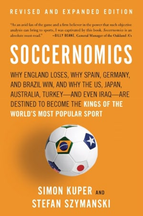 Last Sunday, NewsTalk's Off The Ball radio show broadcast an interview with Simon Kuper (at approximately 49 minutes of part 4 of the show here). Kuper was in Dublin at the web summit and the Off The Ball crew took the opportunity to interview him. The interview starts with a discussion of how the legendary Bill James does not have a smart phone. It then moves to a discussion of the use of statistics in sport. A sizable part of the interview is devoted to an examination of Louis van Gaal's reign at Manchester United. The other large part of the interview involves Kuper discussing what we can expect from the next edition of Soccernomics. When discussing the use of statistics in soccer, Kuper makes the point that soccer is drowning in a sea of statistics and that there is a need for some "mopping up". He says there is a need to determine what statistics are useful. Kuper recounts a discussion he had with Carlo Ancelotti where the Real Madrid boss pointed out that the statistics tended to focus on the 1 minute the player has the ball and ignore the 89 minutes the player is without the ball. It reminded me of the Maldini Principle discussed by Chris Anderson and David Sally in their book The Numbers Game. Anderson & Sally point out that if a defender is doing a good job then they will probably be required to do less tackling. Good positional sense reduces the need to tackle. Anderson & Sally say that Alex Ferguson admits that it was his incorrect intrepretation of the tackle statistics that lead to him allow Jaap Stam to leave Old Trafford. In the interview Kuper says that Alex Ferguson's view on statistics will be included in the new edition of Soccernomics. There will also be new material on Financial Fair Play, the Brazil World Cup, and on the use of match statistics. Kuper was asked what they might have got wrong in the earlier edition. In not so many words, Kuper says "nothing". He does say that some of the issues they raised in the earlier edition have now become mainstream. For example, he says people now accept that host countries do not benefit financially from major sporting events. There are not too many sports economists that would disagree. The interview ended with Kuper being asked about his love of soccer and if it has changed. He admitted his love for club football has dimished because he has "looked behind the curtain". He says players and managers are in it for the money. However, he maintains a love for the representative game in the guise of the Netherlands national team. It is ironic that the economics of the situation seems to suggest that club is increasingly dominating country. By Robbie Butler
Two weeks ago the Badger Ales Trophy went to post at Wincanton racecourse. This Class 1 Listed handicap chase had a prize fund of some £60,000 with the winner scoping just over £34,000. On the day, the Neil Mulholland trained The Young Master easily won the chase by some seven lengths. However, things were not as they appeared. In the minutes after the race, Channel Four commentators began to question whether the horse was eligible to run. One of the race's entry criteria was that a horse must have run in at least three chases. The Young Master had run in just two. Confusion set in. The steward held an inquiry but found that they could not alter the result of the race on the grounds of "ineligibility". The result stood, backers of The Young Master were paid in full, and the matter was passed to the British Horseracing Authority (BHA). The BHA subsequently met and ruled that The Young Master should not have run and was disqualified. Trainer Neil Mulholland was fined £250. The £34,000 prize fund was taken from the owners. However, bets were unaffected. Those that had backed second placed Court By Surprise to win the race could not collected. Here's where it get very interesting. The Young Master's handicap mark was not left alone. The horse was raised 14 lbs in the ratings. This is despite the fact he was disqualified. This seems like a double punishment. BHA director of racing Ruth Quinn said: "We have a duty to the sport as a whole, including punters and other horsemen, and that duty is not played out by not taking account of the form from Saturday's race. We appreciate that this may be seen as a hard line by some, but we are confident that in the best interests of the sport it is the correct decision. It is borne out by other precedents of horses being disqualified - for example for taking the wrong course - then being reassessed off the back of these performances." While the BHA acknowledge that they and Weatherbys (horseracing administrators) made a mistake in letting the horse run, they believe the ultimate responsibility for entry lies with the trainer; hence the double punishment. Racing authorities suggest the error occurred due to 'computer failure'. Blame the computer. The Little Britain "Computer Say No" sketch comes to mind. |
Archives
June 2024
About
This website was founded in July 2013. Categories
All
|
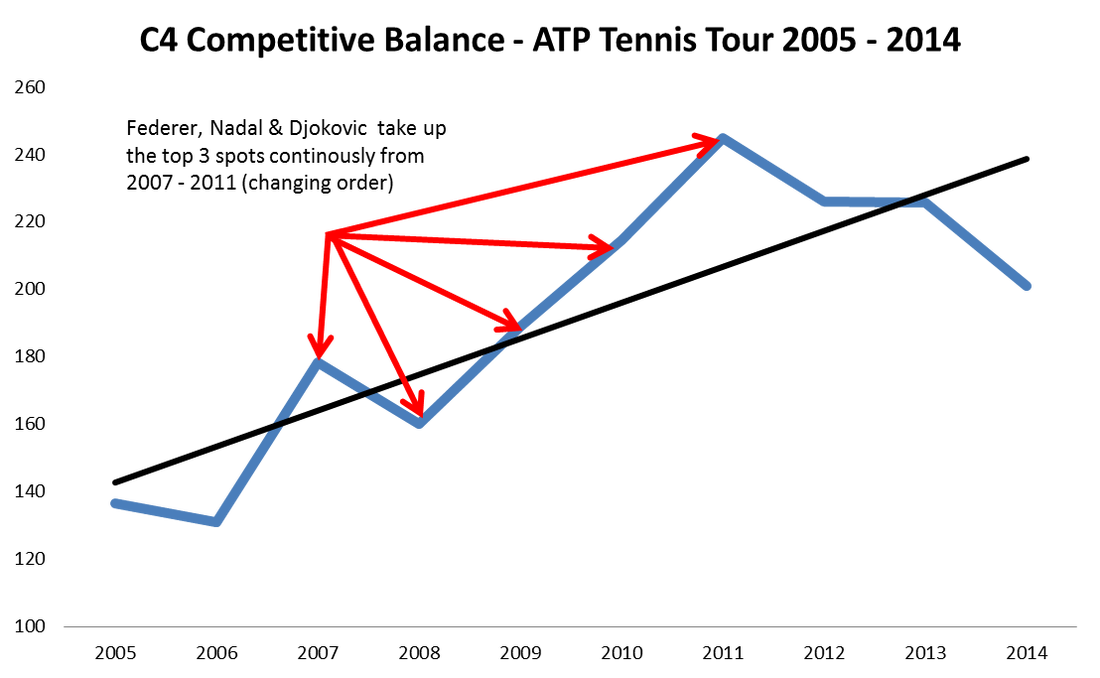
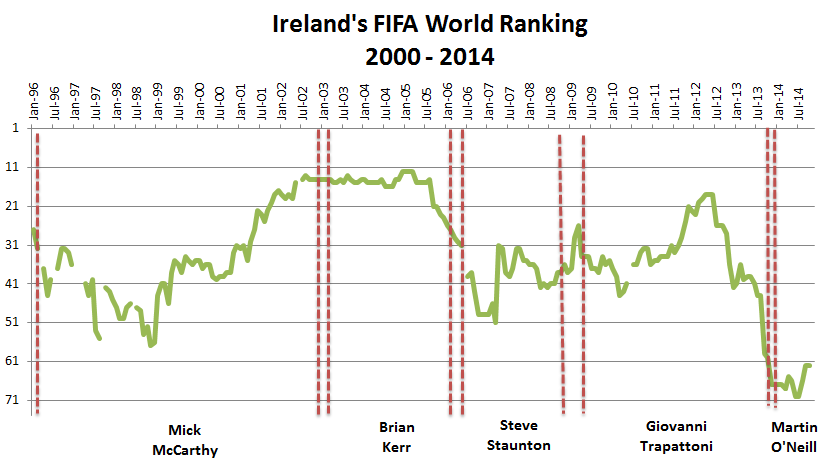
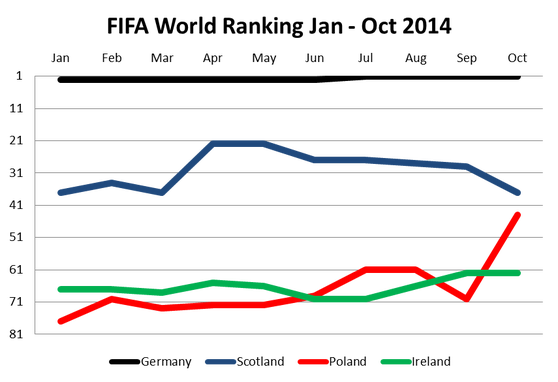
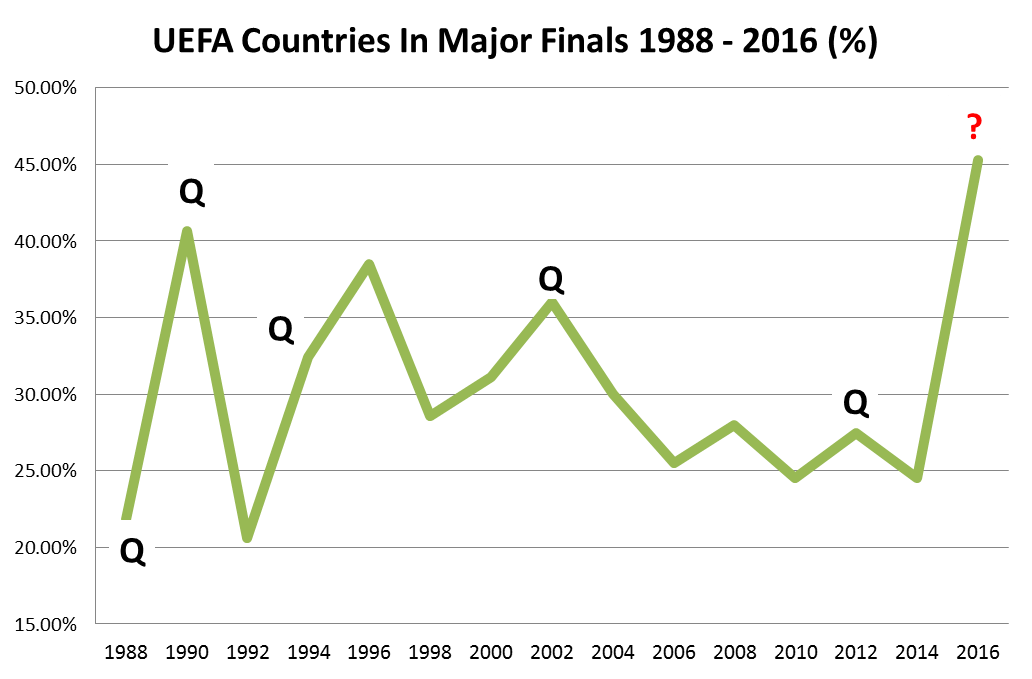
 RSS Feed
RSS Feed